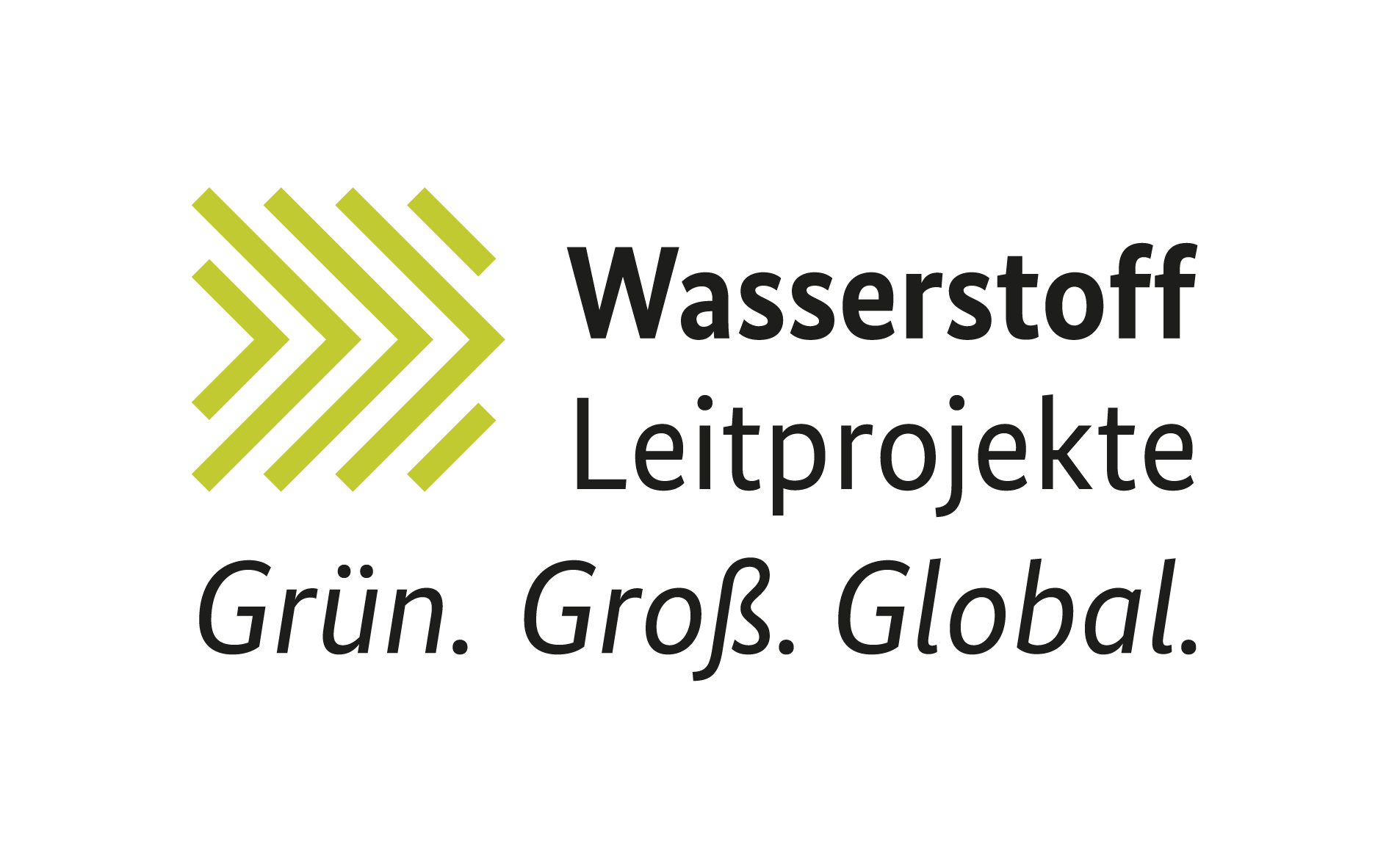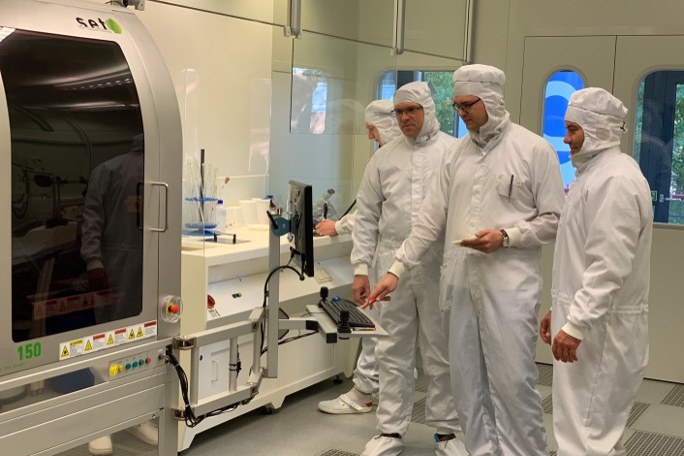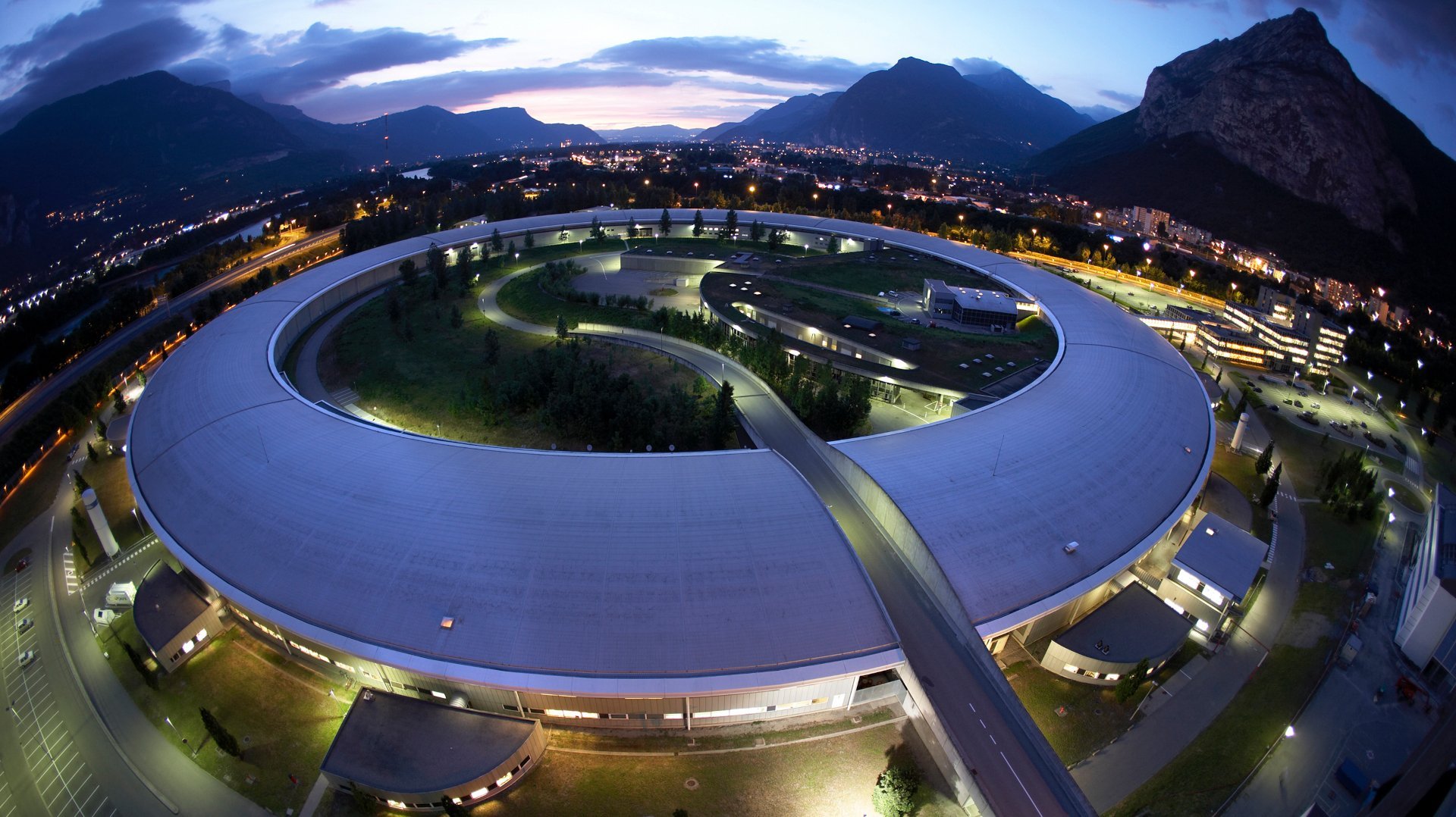Projekte
BMBF Projects

Lead Project H2Giga
More informationBMBF Projects

Information
Lead Project H2Giga
- CENIDE Research Focus:
-
Catalysis
Functional materials for energy applications
- Funding:
- Since 2021
- Contact:
-
Corina Andronescu (Project member)
Doris Segets (Project member)
Nicolas Wöhrl (Project member)
- Website:
- https://www.wasserstoff-leitprojekte.de/leitprojekte/h2giga
Abstract
To cover Germany’s demand for green hydrogen, large capacities of efficient and cost-effective electrolysers are needed. Although efficient electrolysers are already on the market today, they are usually still produced by hand. The H2Giga flagship project will therefore support the series production of electrolysers.

ULMAG – ULtimate MAGnetic Characterization
More informationBMBF Projects

Information
ULMAG – ULtimate MAGnetic Characterization
- CENIDE Research Focus:
-
Magnetic materials
- Funding:
- 2019 - 2022
- Contact:
-
Katharina Ollefs (Project manager)
- Website:
- https://www.mawi.tu-darmstadt.de/fm/outreach_fm/news_fm/news_fm_details_79552.en.jsp
Abstract
The discontinuous nature of the transition in materials with a first-order magnetic transition is a consequence of the coupling between the magnetic, electronic, and structural subsystems, and such transition can, in principle, cross several metastable states, where at one point, the transition takes place within the magnetic subsystem, while at another, the changes occur in the structural or electronic subsystems. To disentangle the nature of such transition and relevant hysteresis mechanism, we designed two new experimental setups, allowing simultaneous measurement of magnetization, longitudinal and transversal magnetostriction and temperature change of the sample, and conducted simultaneous measurements of the prototypical LaFe11.8Si1.2 alloy and revealed rich details of the magneto-structural, first-order transition.

ErUM – Erforschung von Universum und Materie / Projekt IIM@FAIR
More informationBMBF Projects

Information
ErUM – Erforschung von Universum und Materie / Projekt IIM@FAIR
- CENIDE Research Focus:
-
Dynamic processes in solids
- Funding:
- 2019 - 2022
- Contact:
-
Marika Schleberger (Project manager)
- Website:
- https://www.bmbf.de/bmbf/de/forschung/naturwissenschaften/erforschung-von-universum-und-materie/erforschung-von-universum-und-materie_node.html
Abstract
“Every new idea does not come by itself, it is challenged.” What Albert Einstein said is what drives the Federal Ministry of Education and Research: With its new framework program “Exploring the Universe and Matter ErUM”, it is setting research policy priorities and paving the way for top scientific achievements and future technologies as well as for innovation seeds and the young scientists of tomorrow. In this way, basic scientific research can continue to enrich our society in the future: Because basic research is about providing for the future for generations to come. Research into particles, matter and the universe expands today's knowledge and creates the basis for the technologies of tomorrow and beyond.

NanoMatFutur: MatGasDif – NanoMATerials as the basis for GASDIFfusion electrodes for highly selective CO2 reduction
More informationBMBF Projects

Information
NanoMatFutur: MatGasDif – NanoMATerials as the basis for GASDIFfusion electrodes for highly selective CO2 reduction
- CENIDE Research Focus:
-
Catalysis
- Funding:
- Since 2020
- Contact:
-
Corina Andronescu (Project manager)
- Website:
- https://www.werkstofftechnologien.de/projekte/nachwuchsfoerderung/nachwuchsgruppen-energietechnik/dr-ing-corina-andronescu-matgasdif
Abstract
In the fight against climate change, one thing is of particular interest: closing the carbon cycle. The aim is to maintain industrial efficiency and people's standard of living. The MatGasDif project is researching new catalysts and processes for the utilization of carbon dioxide.

ForLab SmartBeam – Forschungslabor Mikroelektronik Duisburg-Essen für Hochfrequenz-Strahlformung
More informationBMBF Projects

Information
ForLab SmartBeam – Forschungslabor Mikroelektronik Duisburg-Essen für Hochfrequenz-Strahlformung
- Funding:
- 2019 - 2021
- Contact:
-
Nils Weimann (Project manager)
- Website:
- https://www.elektronikforschung.de/projekte/forlab-smartbeam
Abstract
Electronic and photonic ultrahigh-frequency chips are being developed in the Microelectronics Research Laboratory (ForLab) SmartBeam. New applications in robotics and autonomous traffic require high-resolution radar systems with material discrimination capability. This can be achieved with carrier frequencies in the THz frequency range. To generate THz radiation with sufficient intensity, individual THz emitters must be connected together. These "phased array" configurations allow the beam to be deflected in arbitrary directions, for scanning the environment -- this is the goal of ForLab SmartBeam.

6GEM – 6G research hub for open, efficient and secure mobile communications systems
More informationBMBF Projects

Information
6GEM – 6G research hub for open, efficient and secure mobile communications systems
- Funding:
- 2021 - 2025
- Contact:
-
Nils Weimann (Project member)
- Website:
- http://www.6gem.de/
Abstract
With their application "6GEM open - efficient - secure - safe", the RWTH Aachen University, the Ruhr-University Bochum, the Dortmund University of Technology and the University of Duisburg-Essen were successful in a call for proposals issued by the German Federal Ministry of Education and Research (BMBF). The four universities will work together with four non-university research institutions on future communication technologies in 6G mobile communications from August 1, 2021. Co-applicants were the Fraunhofer Institute for Material Flow and Logistics, the Fraunhofer Institute for Microelectronic Circuits and Systems, the Fraunhofer Institute for High Frequency Physics and Radar Technology and the Max Planck Institute for Security and Privacy. The 6GEM consortium combines scientific excellence and mobile communications expertise at the network, material, component/microchip and module levels in North Rhine-Westphalia. Experience in their implementation and worldwide networking is also available. A holistic approach is being pursued, from production and logistics to people with their needs for self-determination, privacy and security in times of climate change. The added value of future 6G systems for socially and industrially highly relevant use cases will be demonstrated. For this purpose, seven test sites will be integrated and equipped with 6G systems: A digital operating room at the University of Düsseldorf, a smart hospital at the University Hospital Essen, the German Rescue Robotics Center in Dortmund, the high-speed intralogistics of the Fraunhofer Institute for Material Flow and Logistics in Dortmund, the highly automated production environments of the Fraunhofer Institute for Production Technology in Aachen, a large-scale port logistics in Duisburg, and road traffic scenarios from the city center to the highway in Aldenhoven. The results of the scientific work are expected to generate patents on a large scale.

PUMA
More informationBMBF Projects

Information
PUMA
- CENIDE Research Focus:
-
Magnetic materials
- Funding:
- 2022 - 2026
- Contact:
-
Heiko Wende (Coordinator)
- Website:
- https://www.uni-due.de/cenide/de/news-detail.php?id=energiewende-mit-nachhaltigen-magneten
Abstract
Powerful magnets can be used for effective cooling, heat and power generation. They make a decisive contribution to the energy transition. A consortium led by the UDE is therefore researching new magnetic materials that are efficient and environmentally compatible. Partners in the PUMA project are the Technical University of Darmstadt and the Helmholtz-Zentrum Dresden-Rossendorf (HZDR). The German Federal Ministry of Education and Research is funding PUMA with two million euros for four years starting in October.

